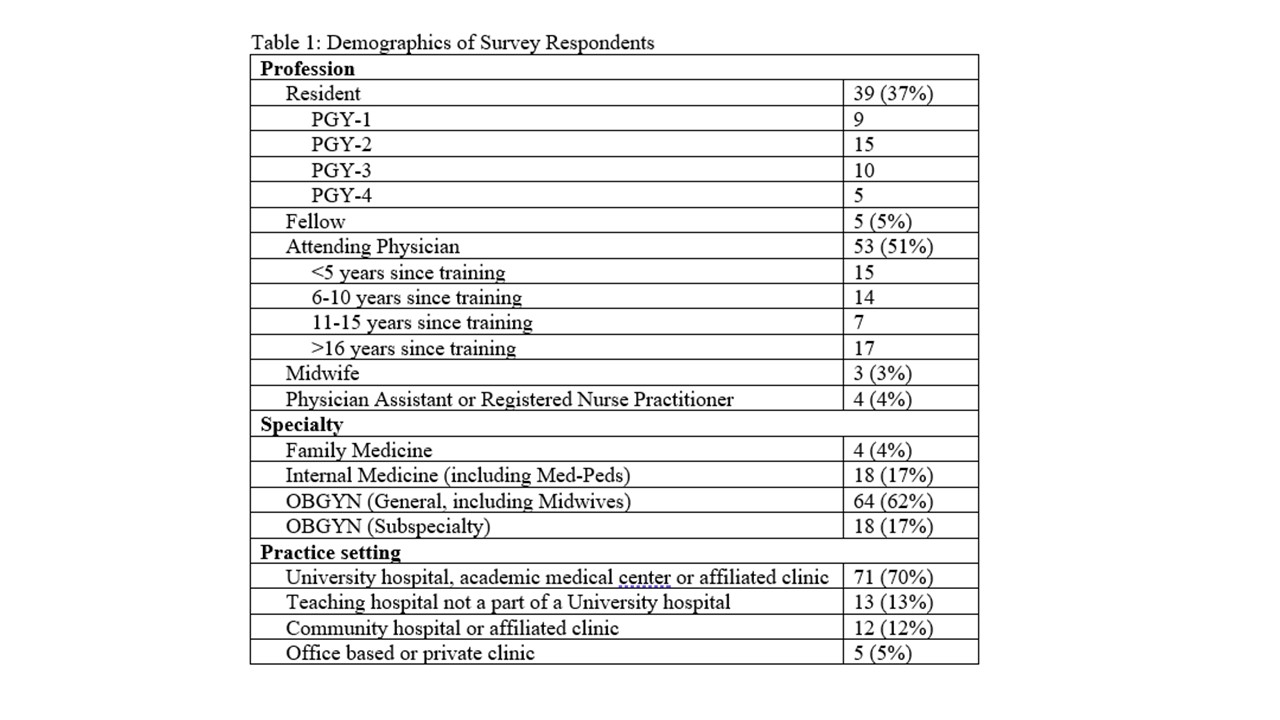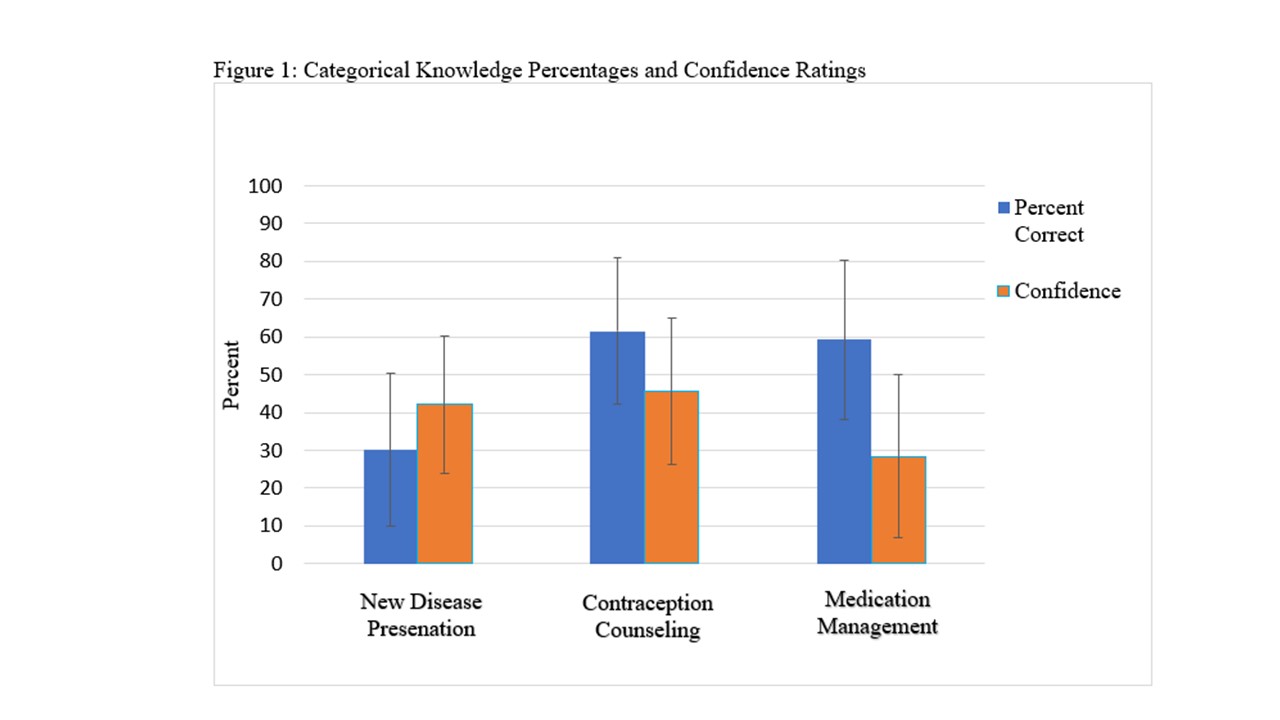Session Information
Date: Tuesday, November 9, 2021
Title: Reproductive Issues in Rheumatic Disorders Poster (1711–1731)
Session Type: Poster Session D
Session Time: 8:30AM-10:30AM
Background/Purpose: Reproductive age women with rheumatic diseases are commonly cared for by non-rheumatologists who provide contraceptive counseling, preconception, pregnancy, and post-partum management. When women’s health and rheumatology providers disagree, patients voice frustration and provider distrust. The education received by women’s health providers pertaining to the recognition and management of rheumatic diseases in child-bearing age patients is not well-defined. This study aims to assess knowledge gaps, specify aspects of care with greatest uncertainty, and assess current resources used by women’s health providers regarding their clinical management in those with rheumatic diseases.
Methods: : An electronic survey was distributed nationally to physicians and allied health professionals who care for reproductive age women and are trained in Obstetrics and Gynecology (OBGYN), Internal Medicine, or Family Medicine. The survey consisted of three sections: 1) patients presenting with new rheumatic diseases, 2) contraception, and 3) preconception/antepartum medication management. Participants were also asked about resource utilization. Survey questions and scenarios were based on the ACR Guidelines for the Management of Reproductive Health in Rheumatic and Musculoskeletal Diseases and relevant American College of Obstetrics and Gynecology (ACOG) Committee Opinions. Responses and confidence ratings were captured using RedCap and analyzed using descriptive statistics.
Results: The survey was completed by 104 participants, majority being academic OBGYN generalists. (Table 1). Respondents performed the poorest in recognizing new rheumatic disease presentations including RA and SLE in patients presenting with post-partum joint pain or proteinuria and thrombocytopenia in pregnancy, respectively (Figure 1). The least confidence was reported when answering medication management questions. Contraception was the area of highest performance and confidence, although areas for contraceptive knowledge expansion exist. Most participants chose to discontinue medications in a pregnant patient with RA, despite these being deemed pregnancy-compatible by ACR guidelines and ACOG Committee Opinion. However, when counseling the same patient post-partum, 72% of respondents successfully chose the breastfeeding-compatible therapies.
Most respondents had no prior exposure to the reproductive health issues facing female patients with rheumatic diseases (Table 2), identified consultants as their main resource used in clinical practice, and would prefer more information to be provided as a website, published guidelines, or Smartphone App.
Conclusion: Women’s health providers lack confidence, educational opportunities, and therefore knowledge across the spectrum of common clinical scenarios and management questions facing reproductive-aged women with rheumatic diseases. Recognizing new disease presentations and antepartum medication management have the largest educational needs. Collaborative resources created by women’s health and rheumatology societies, including websites and smart phone apps, are most desired to fill educational needs and hopefully will improve patient care.
To cite this abstract in AMA style:
He L, Karani R, Arenas G, Edens C. A Womb with Rheum: Women’s Health Providers’ Confidence and Educational Needs in the Care of Those with Rheumatic Diseases [abstract]. Arthritis Rheumatol. 2021; 73 (suppl 9). https://acrabstracts.org/abstract/a-womb-with-rheum-womens-health-providers-confidence-and-educational-needs-in-the-care-of-those-with-rheumatic-diseases/. Accessed .« Back to ACR Convergence 2021
ACR Meeting Abstracts - https://acrabstracts.org/abstract/a-womb-with-rheum-womens-health-providers-confidence-and-educational-needs-in-the-care-of-those-with-rheumatic-diseases/



